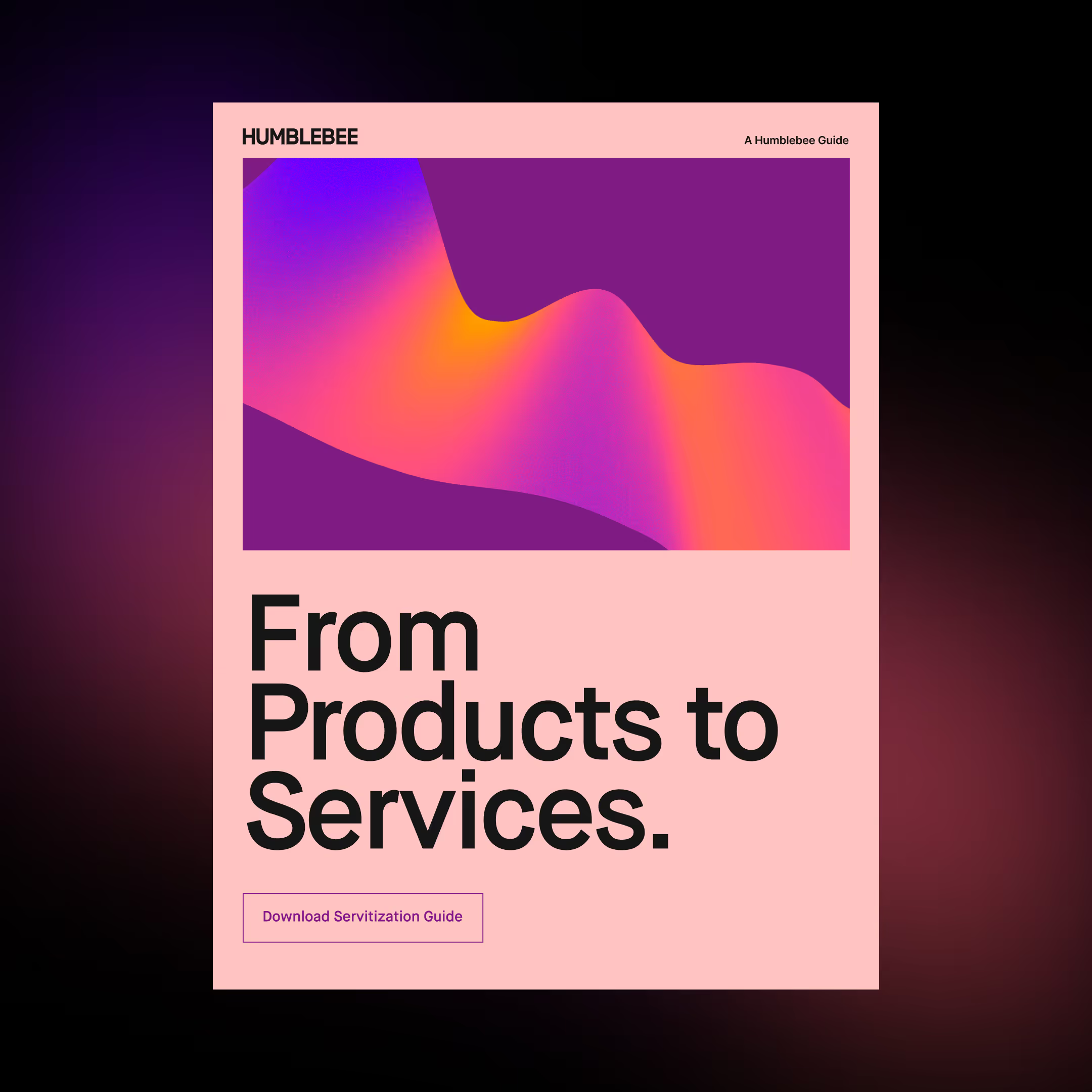🔋Humblebee and the self charging culture
TLDR; We need a work culture that charges people with energy and inspiration instead of draining them. But how?

TLDR; We need a work culture that charges people with energy and inspiration instead of draining them. But how?
Being the tech nerd I am I have always been attached to the idea of Perpetual motion. An infinite machine that runs forever without any interaction. Blows your mind right? I should spend all my time building a machine like that. I’ll be filthy rich!
Unfortunately wikipedia (single point of truth) states that “there is a scientific consensus that perpetual motion in an isolated system violates either the first law of thermodynamics, the second law of thermodynamics, or both.”
Damn. It’s never a good sign when smart people state that an idea violates laws of any kind of flurb-dynamics. Kill your darlings, Johan. Just do it.
But wait, maybe we can get half way there.
What if a machine could do it’s thing, and at the same time charge itself. A quick google on “self charging” shows that a few more people had this idea already. Most of them probably a lot smarter than me. I will never be able to compete. Kill your darlings, Johan. Just do it.
Pivot
In Sweden, that place up north where I happened to come screaming into this world, we have a law stated vacation of 25 days a year. Since Sweden is a dark, cold country people tend to use these days during the short but beautiful summer months. This summer, when discussing vacation with my very talented colleague Russell, I reflected on our use of words. We both said something like:
— “Yes, vacation is gonna be awesome. I really need to recharge those batteries and come back with new energy! Have a good one. See ya in August!” (High fives may have followed)
Even though I can’t scientifically prove it, I would say this type of conversation occurs at every workplace in Sweden just before vacation. We tend to use terms like “get back on track” and “recharge” when speaking about what our well deserved vacation will encompass.
Now just stop for a second and reflect on this. Is it really reasonable that we put so much of our energy, passion and time into our jobs that come vacation, we have depleted our energy reserves and need the full vacation to recharge them?
I would argue the biggest problem with this terminology is that we speak about ourselves in the terms of machines. But we’re not machines, right? A machine doesn’t have feelings which makes it perfect for running empty and then just recharge it. They will never (I know…Artificial Intelligence…but let’s not go there in this post) question why they feel so depleted after a hard days work.
A human that runs out of energy stays that way a lot longer than it takes to recharge a machine. Some even stay in the depleted stage for years or worse, forever. It even has a name, “Chronic fatigue syndrome.” In Sweden and many other western countries, problems with chronic fatigue syndrome and “burnouts” are escalating quickly.
I think we need to change this. And I think we need to do it now.
Introducing: The self charging culture 🔋
What if we could foster a self charging culture. A culture that recharges people instead of depleting them. A place where you go to work, do your thing, and return home with more energy than before. Sure you will need your sleep, but you won’t come home feeling empty and depleted. Let’s call it “tired but inspired”.
A quick google on “self charging culture”. 2 results. (Search for “Recharging culture” gave a few more results, 23.)

How come we are so obsessed in finding technology that recharges itself but don’t spend 10 seconds thinking about how we as human beings will cope with the stress we experience at work, at home and in life.
Now I’m not an expert in stress management or human psychology. I have however worked in the private IT sector at high performing jobs for more than a decade. I have seen what too much negative stress can do to people. I’ve seen people close to me go from being, what it seemed, perfectly well one day to not being able to get out of bed for a year the next. We need to change the way we work.
But can we really expect a job to give us anything in return other than money. Go to work, do your thing, get paid. Isn’t that the way it’s always been and will always be?
Well, you see, I’m not a big fan of constants. In programming we call adding static numbers into the code that cannot be changed “hard coding”. We don’t do that. And so we shouldn’t accept work to suck the life out of us either. No matter what it says on your pay check. I’m convinced that companies failing to recognise this will quickly fall behind, lose good people to competitors and have a really hard time attracting new employees.
We need jobs to be about more than just work. But how?
Keys to success 🔑
You know those health potions you can pick up in online fps games to increase your health. Now visualise yourself picking up these little bottles during the day that fills you with inspiration and energy. That’s my vision right there! But instead of drinking some kind of blueish brew like in the games I imagine the potions being small or big events happening throughout the day. To make room for those events we will need to change a few things in how we see work.

Most of my work days are spent at a place called Humblebee. It’s a quirky little place with people from all over the world building world class digital products together. I love those peoples, and together with them we’re on a journey towards creating the best place to work in the world. So Humblebee is my reference and real life lab when trying to figure out what works and what doesn’t. Here are my reflections so far.
Align the team 🙌
This is a full medium article on it’s own so we won’t get in to deep here. If you’re interested in this topic just google it. But here are some short reflections.
Alignment is about making sure people are doing the work they’re best suited for. Leadership, for example, isn’t necessarily connected to titles. Leadership can be found anywhere in an organisation. This in the real world could for example mean that it’s perfectly ok for the developer in a team to take on the leadership role if she is best suited for it. Despite not having “lead” prefixed to her title.
Alignment is also about a strong team culture. Make sure you celebrate wins and battle drawbacks together. This will create a team that’s willing to take necessary risks, fight together and give each other the energy needed to push things forward.
Make room for innovation 💡
Make the workplace a place where you both get stuff done while at the same time providing space for new ideas. You pay a lot for those square meters, right? So use the physical space to display ideas people might have and make it visible what people are working on.
At Humblebee we are right now trying out a concept we call “Plan Bee” (pun intended). Think of it as a list of ideas and projects that anyone can grab and work on when there is time. It could be during the time between client projects, or when you need a break from the project you’re in at the moment. Projects and team setup is clearly visible in the physical space. Simple as that.
We will try this concept out during fall so look out for an writeup on the insights.
Let people know the real you — not only the work you 👩🎨
Employees know are so much more than their title at work. That becomes obvious when you let people speak about what really makes them tick. You see it in their eyes when they speak. Let them show you. Emma, sitting besides you all day, might be a damn good coder but she might also collect and repair vintage arcade machines in her basement. She probably like her job, but she probably love her arcade machines more. You will see it on her eyes when she starts speaking about it.
At Humblebee we are currently trying out a concept called “Passion Talks” where employees once a week share their interests for the rest of the team. So far we’ve for example heard about arcade games, psychopathy, skateboarding, record collecting, running a music label etc.
Every time you learn something new about the people you spend so many hours with. It’s awesome as it builds trust and empathy within the team.
Foster a learning culture 👩🎓
Knowledge has always meant power. And maybe even more so in this era of digital revolution. The things you learnt yesterday might be outdated today. For a company like Humblebee it’s crucial that people don’t stagnate but keep on learning. Every day.
This will not happen by itself and can not be fixed by sending employees to two day courses. Learning will need to happen naturally and constantly throughout the day. This means putting new employees in high stake projects together with more experienced people. It also means breaking up naturally formed groups making sure everyone gets to interact and learn from each other.
Good luck ❤️
A lot to take in, yes? Well, what works for us might not be what works for your company. But you will need to start thinking about it. What makes people at your workplace feel energised and inspired? Just by starting the discussion will put you on the right path of creating a place where people not only do their work, but also enjoy coming to in the morning.
And hey! Please share your thoughts in the comments! I’d love to hear your keys to success! If you’re interested in coming to work at Humblebee, drop us a mail: jobs@humblebee.se.
More stories






